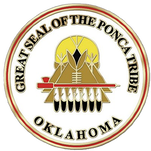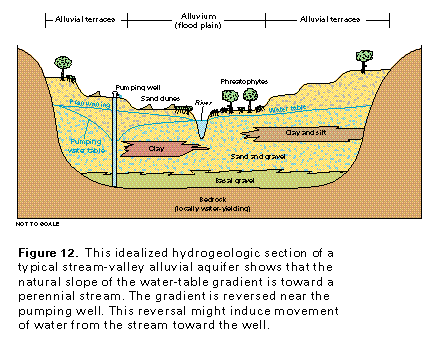Ponca Tribe of Indians of Oklahoma
WATER DEPARTMENT
General Information for Ponca Tribal Water Consumers
Ponca Tribe Utility Authority is pleased to provide water services to its customers.
We strive provide quality water service at its lowest practical cost while maintaining the integrity of each water system.
Billing Information
Customer Service: 580-762-8104
Monday - Friday
8:00 AM - 4:30 PM
Bills will be issued monthly based on the consumption of water.
To obtain accurate meter readings and to maintain meters, all meters must be accessible to the Ponca Tribe Water Department. If a meter cannot be accessed, then an estimate will be used for billing. Meters are read and billed according to the billing cycle, because these due dates cannot be changed.
Bills are due upon receipt of the bill and have until the due date stated. Payments can be made at the EOC Building and dropped off at the front desk or mailed to 101 White Eagle Dr., Ponca City, OK 74601. If payment or payment plans are not set up by the due date, the bill will go delinquent. A cut off notice will be issued on any bill not paid by the due date. Once service is discontinued, services will be reinstated once the delinquent amount is paid in full and an additional deposit up to $100.
If you would like to specify a specific payment plan or have any questions, please contact:
Aliayah Buffalohead
580-762-8104
[email protected]
Ponca Tribe of Oklahoma offers the following payment options:
- Set up bank draft by filling out the Bank Draft Form and dropping it off at the EOC Building.
- Pay with cash, check, or money orders and drop them off at the EOC Building at the the front desk or mail them to 101 White Eagle Dr., Ponca City, OK 74601.
Service Information
(For billing questions, turn on or off services, transfers, new service)
580-762-8104 or [email protected]
Monday - Friday
8:00 AM - 4:30 PM
Emergency Calls all hours, 7 days a week:
580-304-3393
Ponca Tribe Utility Authority is pleased to provide water services to its customers.
We strive provide quality water service at its lowest practical cost while maintaining the integrity of each water system.
Billing Information
Customer Service: 580-762-8104
Monday - Friday
8:00 AM - 4:30 PM
Bills will be issued monthly based on the consumption of water.
To obtain accurate meter readings and to maintain meters, all meters must be accessible to the Ponca Tribe Water Department. If a meter cannot be accessed, then an estimate will be used for billing. Meters are read and billed according to the billing cycle, because these due dates cannot be changed.
Bills are due upon receipt of the bill and have until the due date stated. Payments can be made at the EOC Building and dropped off at the front desk or mailed to 101 White Eagle Dr., Ponca City, OK 74601. If payment or payment plans are not set up by the due date, the bill will go delinquent. A cut off notice will be issued on any bill not paid by the due date. Once service is discontinued, services will be reinstated once the delinquent amount is paid in full and an additional deposit up to $100.
If you would like to specify a specific payment plan or have any questions, please contact:
Aliayah Buffalohead
580-762-8104
[email protected]
Ponca Tribe of Oklahoma offers the following payment options:
- Set up bank draft by filling out the Bank Draft Form and dropping it off at the EOC Building.
- Pay with cash, check, or money orders and drop them off at the EOC Building at the the front desk or mail them to 101 White Eagle Dr., Ponca City, OK 74601.
Service Information
(For billing questions, turn on or off services, transfers, new service)
580-762-8104 or [email protected]
Monday - Friday
8:00 AM - 4:30 PM
Emergency Calls all hours, 7 days a week:
580-304-3393
The Safe Drinking Water Act defines a Public Water Supply (PWS) as a system that provides water via piping or other constructed conveyances to the public for human consumption. Public Water Supply Systems are classified according to the number and type of persons served. The Ponca Tribe’s Public Water Supply (PWS #063003614) System is classified as a community water system that currently serves a population of 360, with 138 residential service connections. It is regulated by EPA as a Ground Water System and sourced from the Salt Fork Arkansas River, by means of an Alluvial Aquifer. It is currently operated by Amos Simpson, Class D Water/Wastewater Operator.
The Ponca Tribe’s Public Water Supply System, the Water Storage Tank, Water Well, Chemical Feed Station, and Water Lines are all relatively new, having been set up within the past few years. The Water Department staff is currently overhauling the system and is currently under an intensive and comprehensive 18-month EPA Circuit Rider Technical Assistance Program. The purpose of the Circuit Rider Program is to protect the public health of the communities served while meeting Safe Drinking Water Act (SDWA) compliance requirements. It is focused on assisting Tribal water system staff in meeting the goals of:
To achieve these goals, a comprehensive array of services are tailored to meet the needs of individual Tribal water systems while developing a strong understanding among Tribal drinking water system operators, managers, and board members on the need for multiple barriers for public health protection. The Multiple Barrier Approach (MBA) for public health protection strives to maximize the capabilities of each of the three barriers – source, treatment and distribution – to prevent contamination from entering the water system. This central concept is reinforced throughout the various trainings, technical assistance, and other services provided.
Those services being provided are:
Recently, the Office of Environmental Management has applied for Treatment As State status.
The basic requirements for applying for TAS are that the tribe must:
If approved, the Ponca Tribe will be eligible to apply for the following grants:
Several federal environmental laws authorize EPA to treat eligible federally recognized Indian tribes in a similar manner as a state (TAS) for implementing and managing certain environmental programs. The Clean Air Act (CAA), Clean Water Act (CWA), and Safe Drinking Water Act (SDWA) expressly provide the authority for Indian tribes to play essentially the same role in Indian country that states do within state lands.
The Toxic Substances Control Act (TSCA) and the Emergency Planning and Community Right to Know Act (EPCRA) are silent on the role of tribes. EPA has interpreted these acts to authorize tribal participation.
Though separate from TAS, certain other federal laws provide opportunities for tribal participation. Comprehensive Environmental Response, Compensation and Liability Act (CERCLA) Section 126(a) states that tribes shall be given “substantially” the same treatment as a state, which EPA has interpreted to allow tribes to enter cooperative agreements and receive financial assistance under the statute. Similarly, Section 23 of the Federal Insecticide, Fungicide, and Rodenticide Act (FIFRA) authorizes EPA to enter into cooperative agreements with tribes for specific purposes under the Act.
If granted TAS status, we will be in TOTAL CONTROL of our own Natural Resources and have level ground the governor’s new SAFETEA Act, in which the State of Oklahoma assumes regulatory authority over Tribal environmental resources. With the success of the Circuit Rider Technical Assistance, the Ponca Tribe will be ready to hit the ground running with any of these grants and will be able to assume our God-given rule as Earth Protectors.
- Compliance with current SDWA regulations
- Compliance with new SDWA regulations
- Increased number of Tribal water systems served by certified operators
- Increased operator competency and knowledge
- Increased technical, managerial, and financial capacity at Tribal water systems
To achieve these goals, a comprehensive array of services are tailored to meet the needs of individual Tribal water systems while developing a strong understanding among Tribal drinking water system operators, managers, and board members on the need for multiple barriers for public health protection. The Multiple Barrier Approach (MBA) for public health protection strives to maximize the capabilities of each of the three barriers – source, treatment and distribution – to prevent contamination from entering the water system. This central concept is reinforced throughout the various trainings, technical assistance, and other services provided.
Those services being provided are:
- Drinking Water Operator Certification
- Safe Drinking Water Act (SDWA) Operator Certification
- Consumer Confidence Reports (CCR’s)
- Sanitary Surveys/Multiple Barrier Evaluations (MBE’s)
- Revised Total Coliform Rule (RTRC) Assessments
- Implementation of New Drinking Water Regulations
- Operations and Maintenance Support
- Customized Training
- Source Water Assessments (SWA’s)
- Water Treatment, Distribution and Collection Systems, Pumps, Motors and Controls
- Systems Management
- Office management
- Water Wells
- Distribution Hydraulics
- Centrifugal Pumps
- Altitude Control Valves
- Pressure Control Valves
- Lift Stations
- Pump Stations
- Water Audits
- Leak Detection
- Rate Studies
- Inflow and Infiltration
- Smoke Testing
- Sewers Collection System Maintenance
- Risk Management
- Asset Management
- Confined Space Safety
- Trench Safety
- Chemical Feed Calibration
- Financials
- Billing
- Bookkeeping
- Emergency Response Plan
- Wellhead Protection Plan
- Cross Connection Control Plan
- 5 Year Capital Improvement Plan for Water System
Recently, the Office of Environmental Management has applied for Treatment As State status.
The basic requirements for applying for TAS are that the tribe must:
- be federally recognized
- have a governing body carrying out substantial governmental duties and powers
- have appropriate authority, and
- be capable of carrying out the functions of the program.
If approved, the Ponca Tribe will be eligible to apply for the following grants:
- The Clean Air Act (CAA)
- The Clean Water Act (CWA)
- Water Quality Standards: Regulations and Resources
- Clean Water Act Section 303(d): Impaired Waters and Maximum Daily Loads (TMDLs)
- National Pollution Discharge Elimination System (NPDES) Permits
- 404 Dredge and Fill Permits
- The Safe Drinking Water Act (SDWA)
- The Toxic Substance Control Act (TSCA)
Several federal environmental laws authorize EPA to treat eligible federally recognized Indian tribes in a similar manner as a state (TAS) for implementing and managing certain environmental programs. The Clean Air Act (CAA), Clean Water Act (CWA), and Safe Drinking Water Act (SDWA) expressly provide the authority for Indian tribes to play essentially the same role in Indian country that states do within state lands.
The Toxic Substances Control Act (TSCA) and the Emergency Planning and Community Right to Know Act (EPCRA) are silent on the role of tribes. EPA has interpreted these acts to authorize tribal participation.
Though separate from TAS, certain other federal laws provide opportunities for tribal participation. Comprehensive Environmental Response, Compensation and Liability Act (CERCLA) Section 126(a) states that tribes shall be given “substantially” the same treatment as a state, which EPA has interpreted to allow tribes to enter cooperative agreements and receive financial assistance under the statute. Similarly, Section 23 of the Federal Insecticide, Fungicide, and Rodenticide Act (FIFRA) authorizes EPA to enter into cooperative agreements with tribes for specific purposes under the Act.
If granted TAS status, we will be in TOTAL CONTROL of our own Natural Resources and have level ground the governor’s new SAFETEA Act, in which the State of Oklahoma assumes regulatory authority over Tribal environmental resources. With the success of the Circuit Rider Technical Assistance, the Ponca Tribe will be ready to hit the ground running with any of these grants and will be able to assume our God-given rule as Earth Protectors.


